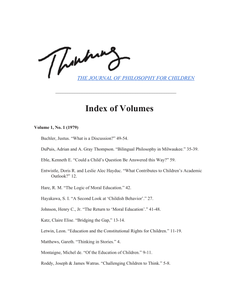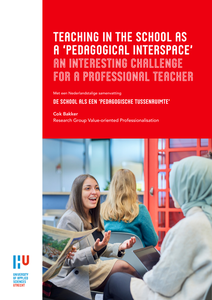This study reports the evaluation of a lesson series, developed in collaboration with teachers and experts, to generate a research-based solution for teaching critical thinking through Socratic dialogue in secondary vocational education. The lesson series has been evaluated for feasibility and tailoring to different target groups of students by five citizenship education teachers and 85 students. Data consisted of self-report questionnaires by teachers and students, complemented with observations of lessons. Results show that lessons based on Socratic dialogue for teaching critical thinking to students in secondary vocational education are considered a promising educational intervention. Teachers considered the lessons as feasible and well-tailored to their students and were able to implement the lessons in their classrooms. Students were motivated to participate, and their motivation did not decrease significantly during the lesson series. At the same time, students tended to be more motivated when the value of learning to think critically for their future profession was clearly substantiated. Practical implications from the evaluation of the lesson series were that, in addition to participating in Socratic dialogue, students need clear learning objectives and short assignments to remain active.
DOCUMENT

I intend to do an action research on how I can improve educating teachers by means of training them in reflective skills through Socratic Dialogue. In order to be able to meet demands posed to student teachers by the recently introduced changes in higher professional education in the Netherlands and also the didactics of new learning introduced at junior vocational education, they need to develop into Self-Directed Learners. We should help them equip themselves with more than just the necessary reflective skills. We should induce and facilitate the birth of genuine need to reflect. They should leave this education able to make justified choices for learning in their professional careers. And they should leave with a genuine curiosity and interest in other ways of thinking than their own. Having realized the importance and value of an open dialogue they will become self-conscious thinkers and practitioners who know how to learn to look and wonder about what they see. In the present situation, the students are asked to reflect on all sorts of items and situations connected with their study career and their school practice. Various models are offered to them (Korthagen, Hendriksen) in the hope that by reflecting, they will learn how to reflect. And they certainly do, to a certain extent. But what this extent is and how long it will be perpetrated after they leave the school is less certain. But the genuine need to reflect remains untouched upon. This can be done by means of training in Socratic Dialogue and training in facilitating one.
DOCUMENT

Within paediatric palliative care, it is essential for families and providers to have open, equal, and trusting relationships. In practice, however, building relationships can be challenging. Investing in better understanding the differences in each other's frames of reference and underlying values seems important. Wonder Lab practices provide a space to explore these differences by focusing together on life phenomena in curious and Socratic ways. Wonder Labs were organised with parents, healthcare professionals, and students involved in Dutch paediatric palliative care. The aim of this study was to develop an understanding of how participants experienced participating in Wonder Labs. We conducted twenty in-depth interviews with Wonder Lab participants and used inductive thematic analysis for data interpretation. Five themes were identified: Slowing down, Appreciating stories, Becoming vulnerable, Opening up and diving in, and Reframing perspectives. Participating in Wonder Labs allowed mothers, healthcare professionals, and students to contribute to deepening experiences and gain an expanded understanding of what is at play in caring for children with life-limiting and life-threatening conditions. Through working in pluralised groups, frames of reference and understandings complemented each other and could change. Participants often adopted a more open attitude towards others involved in care after participating and adapted day-to-day practices. Deliberating within paediatric palliative care on sensitive issues and their underlying personal and professional beliefs and values must be part of working together, without specific care situations being the catalyst. This may foster the mutual understanding needed in searching for quality of life, death, and bereavement.
MULTIFILE

Sociocultural and dialogic theories of education have identified the need to integrate both pedagogical content and language knowledge into teachers’ professional development to promote effective interaction with students about subject content. In this intervention study, a meta-perspective on language was developed to understand how experienced teacher educators (N = 29) conceptualize ongoing language development in professional learning and teaching (referred to as language-developing learning in this study) as part of their pedagogical content knowledge. The data were analysed using content analysis. Language-developing learning was mainly conceived as teacher-oriented professional development. In this process, the language aspect was regarded not only as a tool that applies regulatory and explanatory language but also as a target that connects academic knowledge and interpersonally oriented language. The results increase our awareness of teacher educators’ practical knowledge of academic and interpersonal language in specific disciplinary contexts of teacher professional development in higher education.
DOCUMENT

The journal was a forum for the work of both theorists and practitioners of philosophical practice with children, and published such work in all forms, including philosophical argument and reflection, classroom transcripts, curricula, empirical research, and reports from the field. The journal also maintained a tradition in publishing articles in the hermeneutics of childhood, a field of intersecting disciplines including cultural studies, social history, philosophy, art, literature and psychoanalysis.
DOCUMENT

Today professionals have to deal with more uncertainties in their field than before. We live in complex and rapidly changing environments. The British philosopher Ronald Barnett adds the term ‘supercomplexity’ to highlight the fact that ‘we can no longer be sure how even to describe the world that faces us’ (Barnett, 2004). Uncertainty is, nevertheless, not a highly appreciated notion. An obvious response to uncertainty is to reduce it– or even better, to wipe it away. The assumption of this approach is that uncertainty has no advantages. This assumption is, however, not correct as several contemporary authors have argued. Rather than problematising uncertainty, I will investigate the pros and cons of embedding uncertainty in educational practice of professional higher education. In order to thoroughly explore the probabilities and challenges that uncertainty poses in education, I will dwell on the radical ideas on uncertainty of the German philosopher Friedrich Nietzsche. In The Birth of Tragedy (1872) he recognizes two forces: the Apollinian, that is the pursuit of order and coherence, and the Dionysian, that is the human tendency to nullify all systematization and idealisation. Uncertainty is part of the Dionysian. I will argue that when educators take Nietzsche’s plea to make room for the Dionysian to heart, they can better prepare students for an uncertain world. If and only if students are encouraged to deploy both tendencies – the Apollinian and the Dionysian – they can become professionals who are able to stand their ground in an uncertain and changing (professional) world. This article may be used for non-commercial purposes in accordance with Wiley Terms and Conditions for Self-Archiving. https://doi.org/10.1111/1467-9752.12038
MULTIFILE

This article explores how schools can function as a pedagogical in-between space, or a pedagogical inter-space, and how lecturers can act professionally within this space, of which they themselves are also a part.
DOCUMENT

The research methodology will be developmental research, defined as The systematic study of designing, developing and evaluating instructional programs, processes and products that must meet the criteria of internal consistency and effectiveness. (Richey and Nelson, 1996, p. 1213). Using this kind of methodology will allow me to find outcomes on a Self-Direction Learning (SDL) design process together with colleagues and student teachers - and to carry out several designed learning arrangements from an educational perspective. From the pedagogic perspective I intend to improve the relation between teacher trainer and student teacher with the accent on development, stimulation and support of SDL. This will be done during the design and carrying out of learning arrangements and also by training teacher trainers in the necessary skills of SDL in the context of relational/pedagogic didactic. Looking from both related perspectives it will lead to a construction of an SDL-environment in which teacher trainers and student teacher will learn effectively together.
DOCUMENT

All social media should have a sticker saying 'Don't Jump for the Tool!' While it is tempting 'to use Twitter', the choice of a medium like Twitter cannot be seen in isolation of strategic goals, instruments and expected results, i.e. a communication strategy. We designed a board game, called the Media Strategy Game, which makes professionals aware of the choices and opportunities involved in developing a communication strategy. By playing the game, assumptions about objectives and results are made explicit and awareness is created for the activities needed to achieve objectives. The game therefore serves to stimulate discussions, provides insights for the development of an efficient media policy, and helps to create consensus. While designed for professionals who need to communicate a message inside or outside of an organization, it has also proved very valuable in trainings and in higher education. Recently a workbook has been added to the board game that helps professionals to formulate their communication strategy by providing 16 hands-on models for business strategy, business modelling, leveraging tools and formulating indicators to measure impact.
DOCUMENT

This speech discusses how the professorship intends to support practitioners in the nursing domain and contribute to shaping nursing leadership and each person's professional individuality. The title of the speech, “Notes on Nursing 2.0,” is particularly intended to emphasize the need for these changes in the nursing domain. Not by assuming that nothing has changed in care and nursing since Nightingale's time. There has. Being educated in the professional domain is not only a given but a requirement. The knowledge domain of care and nursing has developed far and wide in nursing diagnostics and standards. Nursing science research, which Nightingale once started as the first female statistician in the British Kingdom, has firmly established itself in education and practice. Wanting to be of significance to others out of compassion is still the professional motivation, but there is no longer a subservient servitude (Cingel van der, 2012). At the same time, wholehearted leadership is not yet taken for granted in daily practice and optimal professional practice falters due to an equality principle of differently educated caregivers and nurses that has been held for too long. That is the need for change to which this 2.0 version “Notes on Nursing” and the lectorate want to contribute in the coming years. Chapter 1, through the metaphors in the story “The Cat Who Looked at the King,” describes the vision of emancipatory action research and the change principles that the lectorate will deploy. Chapter 2 contains the reason, mission and lines of research that are interrelated within the lectorate. Chapters 3 and 4 address the themes of identity and leadership, discussing their interrelationship with professional practice and developing a research culture. In addition, specific aspects that influence practice and work culture today are addressed, and how the lectorate contributes specifically to the development of nursing leadership and the formation of professional identity in the relevant domain is described. Chapter 5 contains a summary of the principles on which the research program is based, as well as information on current and future projects. Chapter 6 provides background information on the lector and the members of the knowledge circle.
DOCUMENT
